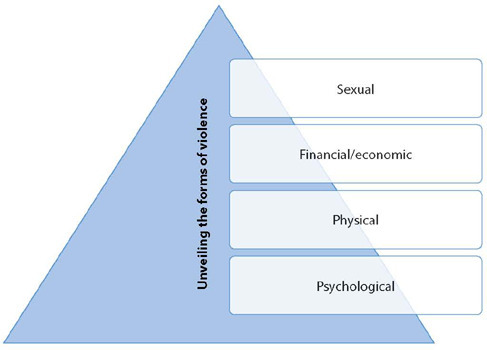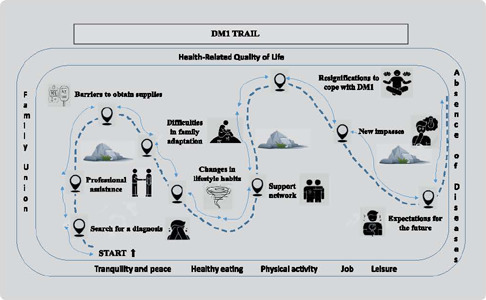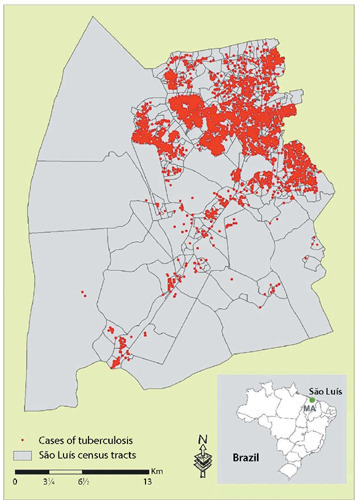-
REVIEW
Clinical outcomes in newborns of pregnant women with COVID-19: integrative review
Revista Brasileira de Enfermagem. 2024;77:e20230400
06-28-2024
Abstract
REVIEWClinical outcomes in newborns of pregnant women with COVID-19: integrative review
Revista Brasileira de Enfermagem. 2024;77:e20230400
06-28-2024DOI 10.1590/0034-7167-2023-0400
Views0See moreABSTRACT
Objectives:
to analyze clinical outcomes in newborns of pregnant women with COVID-19.
Methods:
integrative review conducted in PubMed, Web of Knowledge, SCOPUS, CINHAL; 2,111 studies were obtained, and 8 articles comprised the final sample.
Results:
clinical outcomes in neonates of pregnant women positive for COVID-19 were classified according to the following categories: a) contamination by COVID-19, reported in 62.5% of the studies; b) hospital discharge due to improvement, mentioned in 37.5% of the articles; c) death, representing rare cases in 25% of the sample. The most prevalent gestational complication was prematurity, mentioned in 75% of the studies. This complication has been observed due to cases of premature rupture of membranes and placental abruption.
Conclusions:
despite the knowledge of asymptomatic and mildly symptomatic behavior in neonates, it is important to continue the search for new clinical data, as this public has uncertain reactions to SARS-CoV-2 infection.

-
ORIGINAL ARTICLE
Quality of life at work for health professionals during the COVID-19 pandemic
Revista Brasileira de Enfermagem. 2024;77:e20230461
06-28-2024
Abstract
ORIGINAL ARTICLEQuality of life at work for health professionals during the COVID-19 pandemic
Revista Brasileira de Enfermagem. 2024;77:e20230461
06-28-2024DOI 10.1590/0034-7167-2023-0461
Views0ABSTRACT
Objective:
to evaluate the quality of life at work of health professionals in direct and indirect care of COVID-19 cases.
Methods:
this was a cross-sectional study with 156 health professionals from a referral hospital. The relationship between sociodemographic and work-related variables and perceived stress and domains of the Quality of Life at Work Scale was investigated using inferential statistics and regression.
Results:
Satisfaction with Compassion was moderate (mean: 38.2), with low perception of stress, Burnout and Secondary Traumatic Stress (means: 18.8, 21.6 and 19.1). There were associations between: education, salary, multiple jobs and direct care with Compassion Satisfaction; low income, being a nurse and working overtime with Burnout; and working more than 12 hours, underlying disease and hospitalization for COVID-19 with Secondary Traumatic Stress.
Conclusion:
quality of life at work was satisfactory, despite the presence of Burnout and Secondary Traumatic Stress.
Keywords:Occupational HealthOccupational StressPsychological BurnoutQuality of LifeWorking ConditionsSee more -
ORIGINAL ARTICLE
Quality of Care Transition for COVID-19 Patients in a University Hospital in Southern Brazil
Revista Brasileira de Enfermagem. 2024;77:e20230402
06-28-2024
Abstract
ORIGINAL ARTICLEQuality of Care Transition for COVID-19 Patients in a University Hospital in Southern Brazil
Revista Brasileira de Enfermagem. 2024;77:e20230402
06-28-2024DOI 10.1590/0034-7167-2023-0402
Views0See moreABSTRACT
Objective:
To assess the quality of care transition from hospital to home for COVID-19 patients.
Method:
A cross-sectional study conducted at a University Hospital in Southern Brazil, involving 78 patients discharged after COVID-19 hospitalization. Data collection was performed via telephone using the Brazilian version of the Care Transitions Measure (CTM-15). Data were analyzed using descriptive and analytical statistics.
Results:
The mean quality of care transition was 70.8 on a scale ranging from zero to 100, indicating moderate quality of care transition. The highest score was attributed to factor 1, “Preparation for self-management,” and the lowest to factor 4, “Care Plan.”
Conclusions:
It is important to enhance communication and support provided to patients during the transition process, especially regarding understanding prescribed medications and the development of clear care plans.
-
ORIGINAL ARTICLE
Giving meaning to internalized violence throughout life by older adults living in rural areas
Revista Brasileira de Enfermagem. 2024;77(3):e20230163
06-17-2024
Abstract
ORIGINAL ARTICLEGiving meaning to internalized violence throughout life by older adults living in rural areas
Revista Brasileira de Enfermagem. 2024;77(3):e20230163
06-17-2024DOI 10.1590/0034-7167-2023-0163
Views0See moreABSTRACT
Objectives:
to understand the meanings of violence internalized throughout life by older adults living in rural areas.
Methods:
a qualitative study, anchored in the Symbolic Interactionism theoretical framework and the Grounded Theory methodological framework in the constructivist aspect. Data collection occurred through individual interviews. Data were coded using the Atlas.ti software.
Results:
it was possible to identify that the context of rural areas strengthens patriarchy culture as well as contributing to violence silence and naturalization. It was also found that violence is a product of social inequality and gender inequality.
Final Considerations:
older adults living in rural areas internalized the violence suffered in a unique way, and this scenario’s specific aspects can increase intra-family abuse, as there is a patriarchal culture that promotes social and gender inequality.

-
ORIGINAL ARTICLE
Quality of life associated with nursing professionals’ individual resources and work
Revista Brasileira de Enfermagem. 2024;77(3):e20230476
06-17-2024
Abstract
ORIGINAL ARTICLEQuality of life associated with nursing professionals’ individual resources and work
Revista Brasileira de Enfermagem. 2024;77(3):e20230476
06-17-2024DOI 10.1590/0034-7167-2023-0476
Views0See moreABSTRACT
Objectives:
to assess the physical and mental components of nursing professionals’ quality of life and associate them with individual, health and work characteristics.
Methods:
cross-sectional research, with nursing professionals from a university hospital in São Paulo. Own questionnaire and validated instruments were applied.
Results:
the overall quality of life was compromised. The physical component was lower in relation to low family income and among those who perceived greater control/pressure at work, and better for those who practiced physical activity and had support of leader and organization. The mental component was lower in professionals who reported dissatisfaction with work, worse self-rated physical health and were older. Scores for both components reduced due to work-related illnesses, worse work ability and increased daytime sleepiness.
Conclusions:
quality of life was statistically associated with controllable institutional factors and individual resources that, except age, can be promoted.
-
ORIGINAL ARTICLE
Website for families of non-breastfed children: development and validation of content and interface
Revista Brasileira de Enfermagem. 2024;77(3):e20230490
06-17-2024
Abstract
ORIGINAL ARTICLEWebsite for families of non-breastfed children: development and validation of content and interface
Revista Brasileira de Enfermagem. 2024;77(3):e20230490
06-17-2024DOI 10.1590/0034-7167-2023-0490
Views0See moreABSTRACT
Objectives:
to develop and validate the content and interface of a guidance website to support families in promoting Food and Nutrition Security for children under six months who are not breastfed.
Methods:
methodological study, Knowledge Translation, in two stages of creation: 1) content and validation on the criterion of accuracy in a panel of experts; 2) interface and validation on the criteria of content, language, illustrations, layout, motivation, culture and applicability.
Results:
the “Milky Way” website is freely available: . The content was structured in a decision tree made up of types of milk: milk formula, whole cow’s milk and powdered milk; and utensils: bottle, cup and measuring spoon. There were 46 illustrations to elucidate the content, facilitate understanding and engage the target population. The Content Validity Index was 0.91.
Conclusions:
the website is a validated technology with evidence-based written and pictorial content translated for use with families.

-
ORIGINAL ARTICLE
Meanings attributed to health-related quality of life by caregivers of adolescents with diabetes
Revista Brasileira de Enfermagem. 2024;77(2):e20230314
06-14-2024
Abstract
ORIGINAL ARTICLEMeanings attributed to health-related quality of life by caregivers of adolescents with diabetes
Revista Brasileira de Enfermagem. 2024;77(2):e20230314
06-14-2024DOI 10.1590/0034-7167-2023-0314
Views0See moreABSTRACT
Objective:
to interpret the meanings attributed to the health-related quality of life by caregivers of adolescents with type 1 diabetes mellitus.
Methods:
qualitative, descriptive-exploratory study of 14 caregivers of adolescents with diabetes developed at the reference outpatient clinic for endocrine diseases in a city in the state of Paraíba. Interviews were performed between May and September 2021. Inductive thematic analysis of the empirical material, and its interpretation in light of the concepts of health-related quality of life and family functioning were performed.
Results:
the meanings attributed by caregivers to the health-related quality of life of adolescents converged on the feeling of being healthy, healthy eating, satisfactory family income, family involvement in care and effective access to the care network.
Final Considerations:
knowledge of these meanings enables health professionals to develop strategies that meet the unique demands of caregivers experiencing this diagnosis.

-
ORIGINAL ARTICLE
Development, validation and application of clinical simulation scenarios for assessment of stomatherapy specialists
Revista Brasileira de Enfermagem. 2021;74(1):e20200360
03-24-2021
Abstract
ORIGINAL ARTICLEDevelopment, validation and application of clinical simulation scenarios for assessment of stomatherapy specialists
Revista Brasileira de Enfermagem. 2021;74(1):e20200360
03-24-2021DOI 10.1590/0034-7167-2020-0360
Views0ABSTRACT
Objectives:
to build and validate three clinical simulation scenarios and report the application with candidates for the specialist’s degree in stomatherapy.
Methods:
methodological study, building three scenarios and evaluation checklists; content validation with judges, using content validity index and Modified Kappa Coefficient; pre-test and application.
Results:
scenarios built based on nursing care for: 1. insufficiency and venous ulcer; 2. demarcation of intestinal stomia; and 3. Clean intermittent catheterization. In the content validation of the 24 items appreciated, 83%, 80%, and 92% were validated without change. In the pre-test, the objectives and checklists were adjusted. In the application, to standardize the evaluation, actors and evaluators were trained previously, and each candidate passed the three stations.
Conclusions:
scenarios built and with validated content, based on evidence and covering the three areas of stomatherapy. The pre-test allowed for adjustments in the scenarios, and the candidates achieved the expected objectives.
Keywords:Educational AssessmentNursing EducationPatient SimulationSimulation TrainingValidation StudiesSee more -
Nurse-midwives reconfiguring care in the scope of labor and births in COVID-19 times
Revista Brasileira de Enfermagem. 2021;74:e20200863
04-14-2021
Abstract
Nurse-midwives reconfiguring care in the scope of labor and births in COVID-19 times
Revista Brasileira de Enfermagem. 2021;74:e20200863
04-14-2021DOI 10.1590/0034-7167-2020-0863
Views0See moreABSTRACT
Objectives:
to analyze how the nurse-midwives of maternity wards that were fields of practice for an improvement course in obstetrics have reorganized care in the context of labor and birth amidst the COVID-19 pandemic.
Methods:
this is a descriptive, exploratory and qualitative study carried out with nine nurse-midwives who are preceptors and collaborators in maternity wards that were fields of practice for an improvement course, between February and April 2020, through a semi-structured interview through WhatsApp®. Content analysis was used to treat the information.
Results:
the pandemic brought the need to reorganize work, with a focus on service training and maintenance of good practices in labor and birth, whose movement was intensely experienced, interfering in nurse-midwives’ mental health.
Conclusion:
nurse-midwives have faced the pandemic with concerns about maintaining safe care, focused on practices based on updated scientific evidence.
-
Quality of life and falls in elderly people: a mixed methods study
Revista Brasileira de Enfermagem. 2021;74:e20200400
05-21-2021
Abstract
Quality of life and falls in elderly people: a mixed methods study
Revista Brasileira de Enfermagem. 2021;74:e20200400
05-21-2021DOI 10.1590/0034-7167-2020-0400
Views0ABSTRACT
Objective:
to assess elderly people’s quality of life, understanding the social representations of falls.
Methods:
a convergent mixed methods research carried out at homes, with a sample of 134 elderly people. A structured questionnaire was used, covering sociodemographic variables and factors that indicated frailty and risk of falling. For quality of life assessment, Medical Outcomes Study Short-Form 36 and Theory of Social Representations, Abric’s structural approach were used, with data treated by dictionary of equivalent terms, processed in Evoc 2000, converging analytically according to Neuman.
Results:
quality of life impairment was identified in terms of physical, emotional and functional capacity. The elements of the possible central nucleus were fall, fear, and bruised-broken-bone.
Final considerations:
quality of life impairment can contribute to increase the number of falls, which has been shown to be an event present in elderly people’s lives through evocations. Understanding elderly people’s individual demands allows planning actions.
Keywords:Accident PreventionAccidental FallsCommunity Health NursingHealth Services for the AgedQuality of LifeSee more
-
ORIGINAL ARTICLE
Knowledge and health promotion practice of Family Health Strategy nurses
Revista Brasileira de Enfermagem. 2020;73(5):e20190362
07-06-2020
Abstract
ORIGINAL ARTICLEKnowledge and health promotion practice of Family Health Strategy nurses
Revista Brasileira de Enfermagem. 2020;73(5):e20190362
07-06-2020DOI 10.1590/0034-7167-2019-0362
Views0See moreABSTRACT
Objectives:
to analyze the knowledge and health promotion practice carried out by Family Health Strategy nurses.
Methods:
a descriptive study and qualitative approach. The study was conducted with 18 Family Health Strategy nurses from the city of São Carlos. Data were collected through semi-structured interviews and analyzed through thematic analysis. The study was approved by the Research Ethics Committee.
Results:
the data revealed that nurses had difficulties to conceptualize health promotion, and it is common to describe the definition of disease prevention. Nurses also reported developing group activities for health promotion; however, individual actions and consultations were still predominant.
Final Considerations:
it is necessary to develop sustainable strategies for collective health-promoting activities, in addition to strengthening multidisciplinary work and Continuing Education actions.

-
EDITORIAL
The era of precision medicine and its impact on nursing: paradigm shifts?
Revista Brasileira de Enfermagem. 2021;74(5):e740501
07-28-2021
Abstract
EDITORIALThe era of precision medicine and its impact on nursing: paradigm shifts?
Revista Brasileira de Enfermagem. 2021;74(5):e740501
07-28-2021DOI 10.1590/0034-7167.2021740501
Views0INTRODUCTIONThe large investment and development of research in genomics and molecular biology in the last two decades, especially after the conclusion of the Human Genome Project (HGP), has generated many expectations regarding its impact on the transformation from the conventional medicine paradigm to the precision medicine paradigm(–). The term precision medicine (PM) was used for […]See more -
REFLECTION
Art in evidence-based nursing practice from the perspective of Florence Nightingale
Revista Brasileira de Enfermagem. 2022;75(4):e20210664
02-25-2022
Abstract
REFLECTIONArt in evidence-based nursing practice from the perspective of Florence Nightingale
Revista Brasileira de Enfermagem. 2022;75(4):e20210664
02-25-2022DOI 10.1590/0034-7167-2021-0664
Views0See moreABSTRACT
Objectives:
to discuss, in the light of Florence Nightingale, the historical position of art as a constituent device of evidence-based nursing practice.
Methods:
reflective study anchored in the writings of Nightingale and other researchers with whom it is possible to have a profound dialogue on the theme “art in nursing”.
Results:
art is related to two essential elements in the practice of nursing: knowledge and skill. Understanding science as knowledge and art as skill leads to the idea that both make it possible to combine technical competence, compassion, ethics, and individualization of care. Final Considerations: the art of nursing is the continuous exercise of detailed perception, so that the subjective aspect becomes the center to which the nurse’s gaze converges, that which will allow them to unveil the “truth” posed by the patient, resulting in the best intervention for him.
-
ORIGINAL ARTICLE
Family interview for organ and tissue donation: good practice assumptions
Revista Brasileira de Enfermagem. 2021;74(2):e20190206
06-16-2021
Abstract
ORIGINAL ARTICLEFamily interview for organ and tissue donation: good practice assumptions
Revista Brasileira de Enfermagem. 2021;74(2):e20190206
06-16-2021DOI 10.1590/0034-7167-2019-0206
Views0See moreABSTRACT
Objectives:
to identify information that can support creating good practice assumptions to develop family interview for organ and tissue donation.
Methods:
this scoping study, conducted in two Brazilian hospitals in the southern, between April and December 2017, included integrative review and consultation with 15 families who experienced interview for organ donation. For data analysis, thematic content analysis was used.
Results:
three categories emerged: communication of death, which shows the need to know the history of hospitalization of patients; emotional support, the team must have mastery of the stages of mourning; information about donation, professionals need to know the stages of the donation process and respect families’ time.
Final Considerations:
good practice assumptions point to the need for team training, respect for family time and the use of simple language.

Search
Search in:
Nuvem de Tags
Aged (144) Atenção Primária à Saúde (239) COVID-19 (104) Cuidados de Enfermagem (269) Educação em Enfermagem (151) Educação em Saúde (139) Enfermagem (930) Estudos de Validação (131) Health Education (144) Idoso (208) Mental Health (149) Nursing (987) Nursing Care (306) Patient Safety (151) Primary Health Care (284) Qualidade de Vida (104) Quality of Life (106) Saúde Mental (145) Segurança do Paciente (150) Validation Studies (108)





